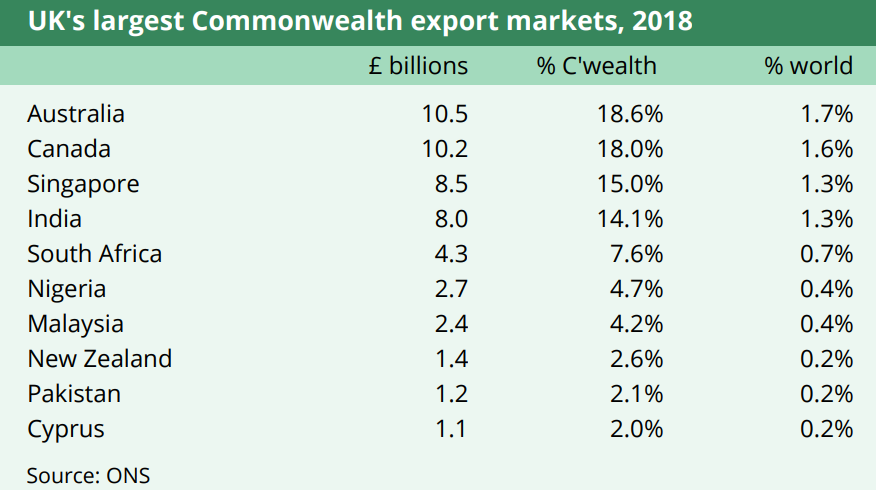This is what a no-deal Brexit would mean for South Africa

Britain will leave the EU on 31st October.
Image: REUTERS/Mike Hutchings - RC1FE4EF2A70
Stay up to date:
South Africa
The possibility of Britain crashing out of the European Union without divorce papers on October 31 is becoming more of a probability as the day draws nearer. What would this mean for South Africa?
“The results of the referendum must be respected. We will leave the EU on October 31,” wrote United Kingdom Prime Minister Boris Johnson on his Twitter account on Tuesday (20 Aug).
The UK went from being South Africa’s eighth largest export market in 2017 to the fourth largest in 2018. Last year, the country exported nearly R64-billion worth of goods to the UK — mainly precious metals, motor vehicles and agricultural products — whereas South Africa imported R43.5-billion worth of goods from the UK.
The trade between the two countries represents 18% of South African exports to its largest trading partner, the EU. Exports to the UK are topped by minerals and motor vehicles, accounting for 25.1% and 11.9% of total exports respectively.
What is the World Economic Forum on Africa?
Earlier this week, Downing Street sought to downplay a leaked document called “Operation Yellowhammer” that predicted the UK would face severe food, medicine and petrol shortages in the event of a no-deal Brexit. The prime minister’s office said that the document is “old” and a “worst-case scenario” .
With Brexit looming, members of the Southern African Customs Union (Sacu), South Africa, Botswana, Eswatini (Swaziland), Lesotho, Namibia and Mozambique have been working towards maintaining normal trade relations with the UK post-Brexit, with talks around an Economic Partnership Agreement (EPA) with the UK still under way.
Under the agreement over 90% percent of SA goods including wines, platinum and motor vehicles would be able to enter into the UK completely duty free or partially duty free.
In the event of a no-deal Brexit and an absence of a finalised EPA, trade between the UK and South Africa would fall back to being governed by trade rules imposed by the World Trade Organisation (WTO) which would mean that SA would not continue to receive any preference over other UK trade partners, according to independent agricultural economist and trade policy analyst, Tinashe Kapuya.
Under the WTO trade rules, South Africa’s car exports would be subject to 10% tariffs — which former trade and industry minister Rob Davies said would “write off” the country’s automotive industry.
The National Association of Automobile Manufacturers of SA (NAAMSA) reported higher global vehicle exports in 2018 , with Europe on the whole dominating as a region with 233 772 vehicles exports. This represented a 22.7% increase from the previous year.
“There are a lot of technicalities that are going to come into play if the no-deal happens. We need to have finalised a trade agreement with the UK before the 31st,” Kapuya says.
The UK has already finalised a roll-over trade deal with a number of countries and trading blocs around the world, including Madagascar, Mauritius, Seychelles and Zimbabwe in a bid to ensure a smooth transition of trade relations post-Brexit.
South Africa’s trade ministry says the country as part of Sacu will be meeting with the UK representatives in September to iron out outstanding issues including trade “safeguards” in the event of a no-deal Brexit.
“Traders shouldn’t be too worried,” said Catherine Grant-Makokera, director at the Tutwa Consulting group. But she added that a no-deal Brexit could have a negative impact on the car industry.
“The automotive industry is probably the most concerned. If there is no deal, then there will definitely be a disruption to the global supply chain in automotive production,” she said.
Kapuya said Brexit delays could conceivably benefit Sacu members who had yet to sign a trade deal with the UK.
“The Brexit delays have bought us time to negotiate outstanding issues so we will have a coherent regional agenda in which we will try to finalise some of the issues,” he said, adding that “the rollover agreement is still being negotiated under very uncertain circumstances, but we [SACU] have done what we can to ensure a smooth transition so far.”
Don't miss any update on this topic
Create a free account and access your personalized content collection with our latest publications and analyses.
License and Republishing
World Economic Forum articles may be republished in accordance with the Creative Commons Attribution-NonCommercial-NoDerivatives 4.0 International Public License, and in accordance with our Terms of Use.
The views expressed in this article are those of the author alone and not the World Economic Forum.
Forum Stories newsletter
Bringing you weekly curated insights and analysis on the global issues that matter.
More on Trade and InvestmentSee all
Philippe Isler and Mariam Soumaré
May 2, 2025
William Dixon
April 28, 2025
Alem Tedeneke
April 25, 2025
Jimena Sotelo
April 25, 2025
Don Rodney Junio
April 24, 2025
Manfred Elsig and Rodrigo Polanco Lazo
April 23, 2025






